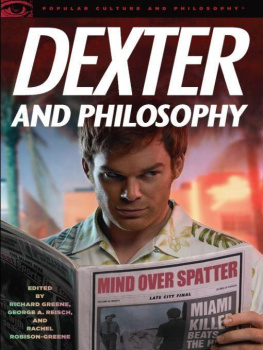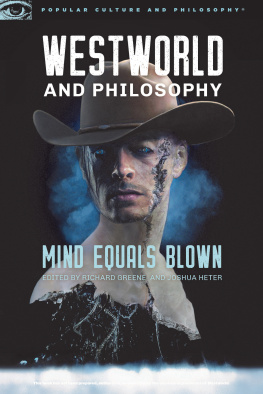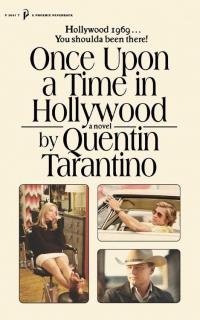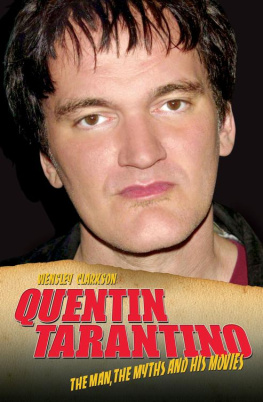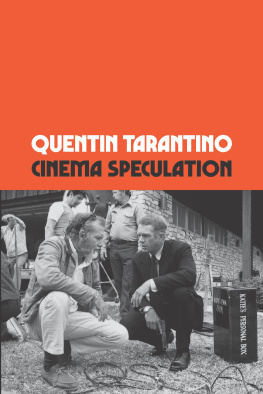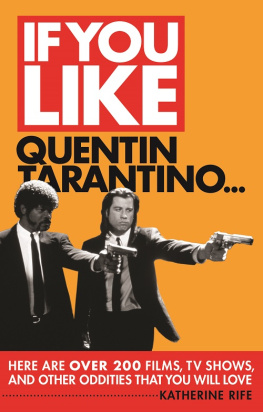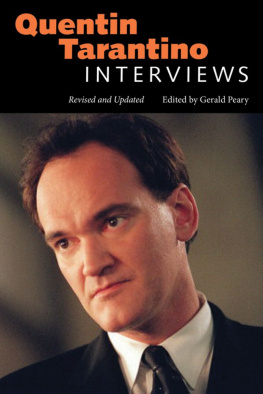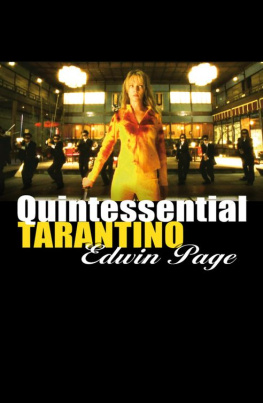Table of Contents
Popular Culture and Philosophy Series Editor: George A. Reisch
VOLUME 1
Seinfeld and Philosophy: A Book about Everything and Nothing (2000)
VOLUME 2
The Simpsons and Philosophy: The Doh! of Homer (2001)
VOLUME 3
The Matrix and Philosophy: Welcome to the Desert of the Real (2002)
VOLUME 4
Buffy the Vampire Slayer and Philosophy: Fear and Trembling in Sunnydale (2003)
VOLUME 5
The Lord of the Rings and Philosophy: One Book to Rule Them All (2003)
VOLUME 6
Baseball and Philosophy: Thinking Outside the Batters Box (2004)
VOLUME 7
The Sopranos and Philosophy: I Kill Therefore I Am (2004)
VOLUME 8
Woody Allen and Philosophy: You Mean My Whole Fallacy Is Wrong? (2004)
VOLUME 9
Harry Potter and Philosophy: If Aristotle Ran Hogwarts (2004)
VOLUME 10
Mel Gibsons Passion and Philosophy: The Cross, the Questions, the Controversy (2004)
VOLUME 11
More Matrix and Philosophy: Revolutions and Reloaded Decoded (2005)
VOLUME 12
Star Wars and Philosophy: More Powerful than You Can Possibly Imagine (2005)
VOLUME 13
Superheroes and Philosophy: Truth, Justice, and the Socratic Way (2005)
VOLUME 14
The Atkins Diet and Philosophy: Chewing the Fat with Kant and Nietzsche (2005)
VOLUME 15
The Chronicles of Narnia and Philosophy: The Lion, the Witch, and the Worldview (2005)
VOLUME 16
Hip Hop and Philosophy: Rhyme 2 Reason (2005)
VOLUME 17
Bob Dylan and Philosophy: Its Alright Ma (Im Only Thinking) (2006)
VOLUME 18
Harley-Davidson and Philosophy:
Full-Throttle Aristotle (2006) Edited by Bernard E. Rollin, Carolyn M. Gray, Kerri Mommer, and Cynthia Pineo
VOLUME 19
Monty Python and Philosophy: Nudge Nudge, Think Think! (2006) Edited by Gary L. Hardcastle and George A Reisch
VOLUME 20
Poker and Philosophy: Pocket Rockets and Philosopher Kings (2006) Edited by Eric Bronson
VOLUME 21
U2 and Philosophy: How to Decipher an Atomic Band (2006) Edited by Mark A. Wrathall
VOLUME 22
The Undead and Philosophy: Chicken Soup for the Soulless (2006) Edited by Richard Greene and K. Silem Mohammad
VOLUME 23
James Bond and Philosophy: Questions Are Forever (2006) Edited by James B. South and Jacob M. Held
VOLUME 24
Bullshit and Philosophy: Guaranteed to Get Perfect Results Every Time (2006) Edited by Gary L. Hardcastle and George A. Reisch
VOLUME 25
The Beatles and Philosophy: Nothing You Can Think that Cant Be Thunk (2006) Edited by Michael Baur and Steven Baur
VOLUME 26
South Park and Philosophy: Bigger, Longer, and More Penetrating (2007) Edited by Richard Hanley
VOLUME 27
Hitchcock and Philosophy: Dial M for Metaphysics (2007) Edited by David Baggett and William A. Drumin
VOLUME 28
The Grateful Dead and Philosophy: Getting High Minded about Love and Haight (2007) Edited by Steven Gimbel
VOLUME 29
Quentin Tarantino and Philosophy: How to Philosophize with a Pair of Pliers and a Blowtorch (2007) Edited by Richard Greene and K. Silem Mohammad
VOLUME 30
Pink Floyd and Philosophy: Careful with that Axiom, Eugene! (2007) Edited by George A. Reisch
IN PREPARATION:
Johnny Cash and Philosophy (2008) Edited by John Huss and David Werther
Bruce Springsteen and Philosophy (2008) Edited by Randall E. Auxier and Doug Anderson
Battlestar Galactica and Philosophy (2008) Edited by Josef Steiff and Tristan D. Tamplin
The Legend of Zelda and Philosophy (2008) Edited by Luke Cuddy
Star Trek and Philosophy (2008) Edited by Jason T. Eberl and Kevin S. Decker
iPod and Philosophy (2008) Edited by Dylan E. Wittkower
The Wizard of Oz and Philosophy (2008) Edited by Randall E. Auxier and Phil Seng
For Dan, Lisa, Lori, and Wade
Acknowledgments
Working on this project has been a pleasure, in no small part because of the many fine folks who have assisted us along the way. In particular a debt of gratitude is owed to George Reisch and David Ramsay Steele at Open Court, the contributors to this volume (each of whom agreed to produce top-notch work at a highly accelerated pace), and our respective academic departments at Southern Oregon University and Weber State University (Terry Thiel has been particularly supportive). Finally, wed like to thank those students, friends, and colleagues with whom weve had fruitful and rewarding conversations on various aspects of Tarantinos work in relation to philosophical themes.
Lets Go to Woik
Quentin Tarantino makes the most aggressively reflexive films in contemporary mainstream cinema. From dialogue about Madonna, Lee Marvin, and the Fantastic Four in 1992s Reservoir Dogs, to the Seventies retro pastiche of 2007s Death Proof, Tarantinos movies are obsessed with pointing self-consciously to their own knowledge of the position they occupy among the disposable (but infinitely recyclable) entertainments of American pop culture.
Are movies like Pulp Fiction and Kill Bill themselves disposable, or do they rise above the cultural products to which they refer? Are these movies truly thoughtful, or are they merely elaborate superficial gestures that generate the illusion of theoretical depth through a canny wink? Does Tarantino have a philosophy? Has he ever even read any?
Although Tarantino has a quick and often wicked intellect, his favored genresthe gangster flick, the martial arts epic, the B car-chase movieare ones whose familiar conventions emphasize action over contemplation. One of his pet strategies is to undermine these conventions by indulging in extended sequences of dialogue about topics external to the plot: topics as trivial as fast food and as ponderous as divine will.
Even in the latter case, however, the terms in which heavy issues are discussed are often borrowed from mass media representations. The contract killer Jules in Pulp Fiction announces his intentions of renouncing worldly pursuits to walk the earth, like Caine in Kung Fu; the Asian philosophy in Kill Bill is no more intensive than what anyone could absorb from watching a few Bruce Lee films. Although an acknowledgment of the conspicuous talkiness of Tarantinos scripts may be key to philosophical readings such as the ones gathered in this volume, whatever significant insights there are to be gleaned from such readings will most likely not come out of straightforward interpretations of content.
This is not to say that Tarantino is unconcerned with questions relevant to traditional philosophical practice. Three particular fascinations recur throughout the body of his work:
the irony of ethical standards in criminal society (and perhaps contemporary capitalism in general);
the difficulty of sorting out received information from direct experience; and
the slippery role of language as a determinant of identity and value.
At different points in Pulp Fiction, hit man Vincent Vega pontificates on the immorality of damaging another mans car (in the middle of scoring some heroin from his dealer), acknowledges that the gossip hes repeating is not a fact but just what I heard, and gives an elaborate account of the different names given to fast-food hamburgers in France. Taken by themselves, these are amusing bits of colorful dialogue; perceived as a pattern throughout fifteen years worth of films, they begin to suggest that Tarantino has some interesting philosophical preoccupations.


